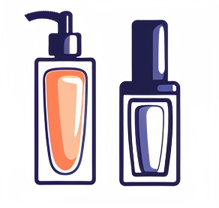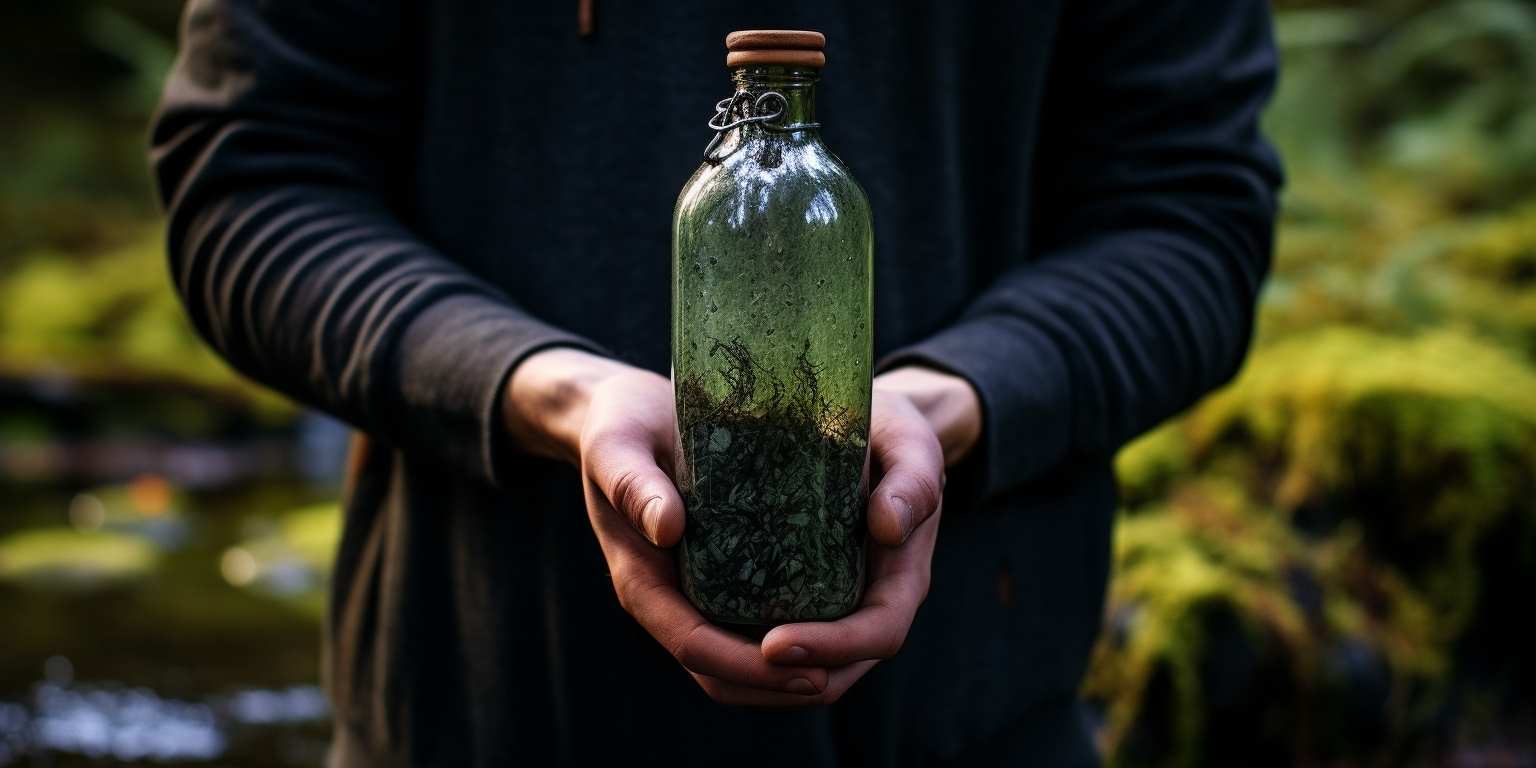The ultimate guide to natural shampoo for oily hair
One of the key ingredients to look for in a natural shampoo for oily hair is tea tree oil. This potent essential oil boasts antimicrobial properties that help to cleanse the scalp, removing excess oil and impurities without drying it out. Additionally, tea tree oil has a refreshing scent that leaves hair smelling clean and revitalized.
Lemon extract is another powerhouse ingredient commonly found in natural shampoos for oily hair. Its acidic nature helps to balance the scalp’s pH level, reducing oiliness and promoting a healthier environment for hair growth. Moreover, lemon extract imparts a natural shine to the hair, leaving it looking lustrous and vibrant.
For individuals with oily hair prone to dandruff, peppermint oil can be a beneficial addition to their shampoo routine. Peppermint oil possesses soothing properties that alleviate scalp irritation while regulating oil production. It also provides a cooling sensation, invigorating the scalp and promoting blood circulation.
Rosemary extract is another natural ingredient that can work wonders for oily hair. Rich in antioxidants, rosemary extract helps to remove buildup and unclog hair follicles, preventing excess oil production. Additionally, its stimulating properties can strengthen hair follicles, reducing hair loss and promoting thicker, healthier hair.
When choosing a natural shampoo for oily hair, it’s essential to avoid sulfates, parabens, and silicones, as these can weigh down the hair and exacerbate oiliness. Instead, opt for formulas enriched with plant-based ingredients that nourish and balance the scalp without stripping its natural oils.
To make the most of your natural shampoo for oily hair, ensure you massage it gently into the scalp, allowing the ingredients to penetrate and effectively cleanse. Follow up with a lightweight conditioner, focusing primarily on the lengths and ends of your hair to avoid weighing down the roots.
Oil control hair wash: finding the right balance
In the quest for a balanced oil control hair wash, finding the right harmony between cleanliness and moisture is crucial. Striking this balance ensures your hair stays healthy, vibrant, and free from the unwanted effects of excess oil.
When it comes to managing oily hair, it’s essential to choose hair care products specifically formulated to target excess oil without stripping away essential moisture. Look for shampoos and conditioners labeled as “oil control” or “clarifying” to effectively combat greasiness.
Ingredients play a pivotal role in determining the effectiveness of an oil control hair wash. Opt for products containing clarifying agents such as tea tree oil, witch hazel, or citrus extracts that help to cleanse the scalp and regulate oil production.
| Key Ingredients for Oil Control Hair Wash: | |
|---|---|
| Tea Tree Oil | Antibacterial properties |
| Witch Hazel | Tones the scalp and regulates oil |
| Citrus Extracts | Natural astringents that cleanse and refresh |
While it’s tempting to wash oily hair frequently, over-washing can actually exacerbate the problem by stimulating the scalp to produce more oil. Instead, aim to wash your hair every other day or as needed, using a gentle, sulfate-free shampoo to avoid stripping away too much natural oil.
Proper technique is also key to effectively managing oily hair. When shampooing, focus on massaging the scalp to loosen buildup and stimulate circulation. Rinse thoroughly with lukewarm water to ensure all product residue is removed.
Conditioning is still important, even for oily hair. However, it’s crucial to choose a lightweight, oil-free conditioner and apply it only to the mid-lengths and ends of your hair, avoiding the scalp area where oil tends to accumulate.
In addition to your regular cleansing routine, incorporating a weekly deep cleansing treatment can help to remove stubborn buildup and refresh your scalp. Look for clarifying masks or scalp scrubs containing exfoliating agents like salicylic acid or charcoal to purify and balance the scalp.
Clarifying natural shampoo: deep clean your scalp
Natural shampoos have gained immense popularity in recent years as people increasingly prioritize clean and organic options for their hair care routine. Among the various types of natural shampoos available, clarifying natural shampoo stands out for its ability to provide a deep cleanse to the scalp, promoting healthier hair from the roots.
Unlike regular shampoos that may contain harsh chemicals, clarifying natural shampoos are formulated with gentle yet effective ingredients sourced from nature. These shampoos are designed to remove product buildup, excess oil, and impurities that can accumulate on the scalp over time. The result is a refreshed and revitalized scalp that creates an optimal environment for hair growth.
Deep Cleansing: One of the key features of clarifying natural shampoo is its ability to deliver a thorough cleanse. Ingredients such as apple cider vinegar, activated charcoal, and tea tree oil work together to break down and remove buildup, leaving the scalp feeling squeaky clean. This deep cleansing action is particularly beneficial for individuals who use styling products regularly or have oily scalps.
Ingredients Matter: The power of clarifying natural shampoo lies in its carefully selected ingredients. Apple cider vinegar, known for its acidic nature, helps to balance the pH of the scalp, preventing issues like dandruff and itchiness. Activated charcoal acts like a magnet, pulling out impurities from the hair follicles, while tea tree oil provides antibacterial properties, promoting a healthier scalp environment.
Benefits Beyond Cleansing: In addition to its cleansing prowess, clarifying natural shampoo offers several other benefits. It can add volume to limp hair, enhance natural shine, and improve overall hair texture. The absence of synthetic fragrances and harsh chemicals also makes it a suitable choice for those with sensitive scalps or allergies.
How to Use: To maximize the benefits of clarifying natural shampoo, it’s important to use it correctly. Wet your hair thoroughly, apply a small amount of the shampoo, and massage it into your scalp using gentle circular motions. Allow it to sit for a few minutes to let the ingredients work their magic, then rinse thoroughly. For individuals with oily hair, using a clarifying shampoo once a week may be sufficient, while those with drier hair can opt for bi-weekly use.
Ingredients to look for in natural shampoo for oily hair
When it comes to managing oily hair, finding the right shampoo can make all the difference. Natural shampoos tailored for oily hair are gaining popularity for their gentle yet effective formulas that cleanse without stripping the scalp of its natural oils. To make an informed choice, it’s essential to know what ingredients to look for.
Tea tree oil: This essential oil is renowned for its antibacterial and antifungal properties, making it an excellent choice for oily scalps prone to dandruff and itchiness. Look for shampoos containing tea tree oil to help balance oil production and soothe the scalp.
Peppermint: Peppermint is not only refreshing but also has a cooling effect on the scalp, making it ideal for oily hair types. Shampoos infused with peppermint oil can help to regulate sebum production while providing a tingling sensation that invigorates the scalp.
Citrus extracts: Ingredients like lemon or orange extracts are natural astringents that help to cleanse and clarify the scalp, removing excess oil and buildup without causing dryness. Look for shampoos that harness the power of citrus extracts for a refreshed and balanced scalp.
Clay: Clays such as kaolin or bentonite are known for their ability to absorb excess oil and impurities from the scalp, making them valuable ingredients in shampoos for oily hair. These clays gently detoxify the scalp, leaving it feeling clean and revitalized.
Apple cider vinegar: This kitchen staple has gained recognition for its clarifying properties when it comes to hair care. Shampoos containing apple cider vinegar help to balance the scalp’s pH levels, remove buildup, and restore shine to oily hair without stripping it of essential moisture.
Salicylic acid: An exfoliating agent commonly found in skincare products, salicylic acid can also be beneficial in shampoos for oily hair. It helps to unclog pores on the scalp, regulate oil production, and prevent flakiness, promoting a healthier scalp environment.
Herbal extracts: Ingredients like rosemary, lavender, or nettle are known for their purifying and soothing properties. Shampoos enriched with herbal extracts can help to balance oil production, calm inflammation, and promote overall scalp health.
| Ingredient | Benefits |
|---|---|
| Tea tree oil | Antibacterial, antifungal, balances oil production |
| Peppermint oil | Regulates sebum production, refreshes scalp |
| Citrus extracts | Natural astringents, clarifies scalp |
| Clay | Absorbs excess oil, detoxifies scalp |
| Apple cider vinegar | Balances pH, removes buildup |
| Salicylic acid | Unclogs pores, regulates oil production |
| Herbal extracts | Purifies, soothes scalp |
How to incorporate natural shampoo into your hair care routine
When it comes to revolutionizing your hair care routine, incorporating natural shampoo is a game-changer. Bid farewell to harsh chemicals and welcome the nurturing embrace of ingredients straight from Mother Nature. Making this transition seamlessly requires a thoughtful approach. Let’s delve into the art of infusing natural goodness into your hair care regimen.
Firstly, understand your hair type. Natural shampoos cater to a spectrum of needs, from oily to dry, curly to straight. Knowing your hair type ensures you pick a product that aligns with your specific requirements. Consider this your first step towards a personalized hair care experience.
When selecting a natural shampoo, pay close attention to the ingredient list. Opt for products free from sulfates, parabens, and artificial fragrances. These additives can strip your hair of its natural oils, leaving it dry and lifeless. Instead, look for ingredients like aloe vera, tea tree oil, and lavender for a refreshing and nourishing cleanse.
Now, let’s talk about the actual washing process. Wet your hair thoroughly, and apply a small amount of natural shampoo. Unlike conventional shampoos, natural ones may not lather as much due to the absence of sulfates. Don’t be alarmed – the cleansing power is still at its peak. Massage the shampoo into your scalp using gentle, circular motions. This stimulates blood flow and ensures the product reaches every strand.
Rinse your hair with lukewarm water. Avoid hot water, as it can strip away the natural oils your scalp produces. For an added boost, consider a final rinse with apple cider vinegar. This not only restores the pH balance of your scalp but also imparts a glorious shine to your locks.
For those who are accustomed to using conditioner after every wash, fear not. Natural shampoos often eliminate the need for a separate conditioner. However, if your hair craves extra moisture, a coconut oil treatment once a week can work wonders.
Frequency matters in the world of natural hair care. Unlike their chemical-laden counterparts, natural shampoos are gentle and can be used more frequently. Find a balance that suits your hair – whether it’s a daily cleanse or a few times a week.
As with any lifestyle change, consistency is key. Allow your hair a transition period of a few weeks to adjust to the new routine. During this time, you may notice a shift in texture or oiliness. Fear not – this is just your hair adapting to the absence of harsh chemicals.
Managing expectations: transitioning to natural hair care
Transitioning to natural hair care can be an exciting journey filled with newfound confidence and self-discovery. However, managing expectations during this transition is crucial for a smooth and successful experience.
One of the main points to consider is patience. Transitioning to natural hair care requires time and dedication. Your hair may not immediately respond to new products or routines, and that’s okay. Embrace the process and allow your hair to adjust gradually.
Understanding your hair type is another essential aspect of managing expectations. Different hair types have unique needs and behaviors. Take the time to learn about your hair’s texture, porosity, and elasticity to tailor your natural hair care routine effectively.
It’s important to set realistic goals for your hair journey. While it’s natural to aspire to long, healthy locks, remember that everyone’s hair grows at a different rate. Focus on the overall health and strength of your hair rather than solely on its length.
Consistency is key when transitioning to natural hair care. Establishing a consistent routine and sticking to it will yield better results over time. Whether it’s washing, conditioning, or styling, find products and techniques that work for your hair and stick with them.
Be open to experimentation but also mindful of potential setbacks. Trying new products or styling methods can be fun and exciting, but be cautious of ingredients that may cause adverse reactions or damage to your hair. Gradually introduce new products and observe how your hair responds.
Managing expectations also involves embracing the natural texture and patterning of your hair. Your natural hair may not behave the same way as chemically treated or straightened hair, and that’s perfectly normal. Embrace your curls, coils, or waves and celebrate the unique beauty of your natural hair.
Diy natural shampoo recipes for oily hair
If you’re battling the constant struggle of oily hair, it might be time to ditch commercial shampoos laden with harsh chemicals. Embrace the DIY route with these natural shampoo recipes specifically crafted to combat excess oiliness and leave your locks looking fresh and revitalized.
First up on our list is a refreshing citrus blend. Citrus fruits, known for their astringent properties, work wonders in regulating sebum production. Combine orange peel and lemon juice in a blender, creating a zesty concoction. The acidic nature of these ingredients helps balance scalp oil, leaving your hair feeling clean without being stripped of its natural oils.
If you’re looking for a soothing option, try a lavender and tea tree oil infusion. Lavender not only provides a calming aroma but also helps in controlling oil production. Mix a few drops of tea tree oil for its antimicrobial properties, ensuring a healthy scalp. This dynamic duo creates a gentle yet effective formula for oily hair, leaving it feeling refreshed and fragrant.
For those with an adventurous spirit, a rosemary and mint blend might be just the ticket. Rosemary stimulates hair follicles, promoting a healthier scalp, while mint provides a cooling sensation. Blend fresh rosemary leaves with peppermint leaves, creating a concoction that not only tackles oiliness but also invigorates your senses.
Next, let’s delve into the wonders of apple cider vinegar. A ACV rinse can work wonders for oily hair. Mix one part apple cider vinegar with two parts water and use it as a final rinse after shampooing. The acidity of ACV helps in removing excess oil and residue, leaving your hair with a beautiful shine.
If you prefer a creamier consistency, opt for an aloe vera and jojoba oil shampoo. Aloe vera is renowned for its moisturizing properties, while jojoba oil mimics the scalp’s natural sebum. Blend these ingredients to create a nourishing shampoo that not only controls oiliness but also promotes overall hair health.
It’s important to note that these DIY natural shampoos may take some time for your hair to adjust. Commercial shampoos often strip the scalp of its natural oils, leading to an overproduction of sebum when transitioning to natural alternatives. Be patient, and your hair will thank you in the long run.







